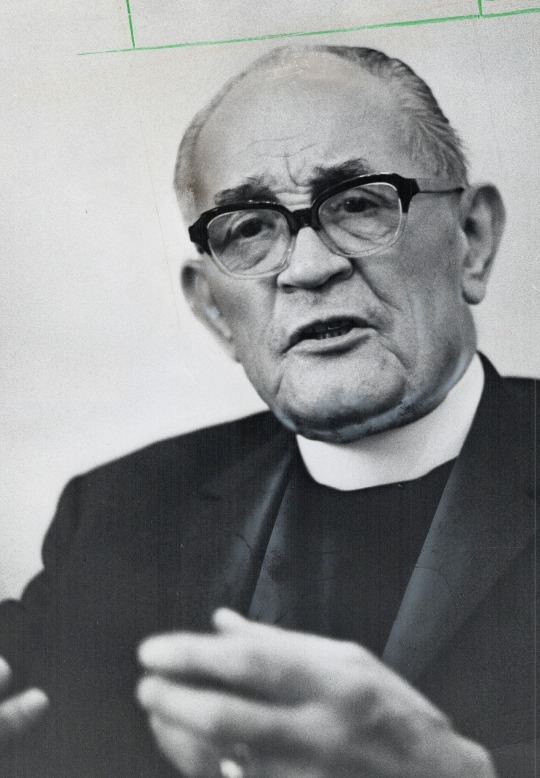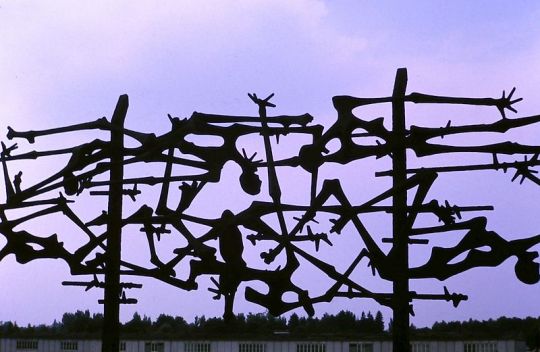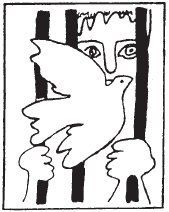#Theologian and pastor during Nazi Germany
Text
Dietrich Bonhoeffer
Dietrich Bonhoeffer was a German theologian, pastor, and anti-Nazi dissident who is widely recognized for his resistance against the policies of Adolf Hitler and the Nazi regime during World War II. Born on February 4, 1906, in Breslau, Germany (now Wrocław, Poland), Bonhoeffer grew up in a family of intellectuals and theologians.
He was ordained a Lutheran pastor in 1931, and served two…

View On WordPress
0 notes
Text
"First they came for the communists, and I did not speak out Because I was not a communist. Then they came for the socialists, and I did not speak out Because I was not a socialist. Then they came for the trade unionists, and I did not speak out Because I was not a trade unionist. Then they came for the Jews, and I did not speak outBecause I was not a Jew. Then they came for me - and there was no one left to speak for me."

Friedrich Gustav Emil Martin Niemöller was a German theologian and Lutheran pastor. He is best known for his opposition to the Nazi regime during the late 1930s.
Born: 14 January 1892, Lippstadt, Germany
Died: 6 March 1984, Wiesbaden, Germany
#today on tumblr#quoteoftheday#Theologian of the German Protestant Church#Preacher and theologian in Nazi Germany#Opponent of Hitler#Dachau concentration camp#Religious freedom advocate#Voice of conscience#Christian resistance movement#Protestant opposition to the Third Reich#Political prisoner#Ecumenical movement#Post-war reconciliation efforts#Cold War activism#Peace and justice advocate#Interfaith dialogue#Legacy of courage and activism#Martin Niemöller#German theologian#Lutheran pastor#Anti-Nazi activist#Resistance against the Nazi regime#Theologian and pastor during Nazi Germany#Protestant resistance#Confessing Church#Holocaust resistance#Persecution of Christians in Nazi Germany#Pastor's Emergency League#Concentration camp survivor#Post-war reconciliation
1 note
·
View note
Text
Congregational or episcopal Character of the Church?
During my probation time – as a beginning pastor in Belgium – there was a lot of discussion on the congregational or episcopal principle in the United Protestant Church in Belgium – Verenigde Protestantse Kerk in België / VPKB). Next to the fact that the protestant church in Belgium (especially in Flanders) was somewhat different from protestant churches in other countries, the assumed character of the church was utterly important! In fact – there was an extra assessment for theologians from outside Belgium, who wanted to work within the VPKB – the so called “box” with reading Materials was very mysterious and very important… Among other things one was asked for an estimate on the church being rather congregational or episcopal?
Soon I found out, that it is not easy to define “episcopal”. Is it about bishops (local, regional or national)? Within catholic (and laicism) dominated Belgium, I noticed that even though people tended to call the structure (within the protestant denomination) rather congregational, some pastors were somehow like local bishops anyway. Whereas pastors have a contract with the local church council, it would mostly be clear, that the pastor (or the main pastor) would be the chair of the church council. On the other hand, pastors might not necessarily be a member of the board, which is dealing with finances and other “worldly” matters. This “local attachment” of pastors sometimes makes it difficult for the church on the district or the synod level to interfere with the business of the local church – even if this might seem appropriate.
Furthermore, it is not easy to define the congregational character either. Yes, as a general protestant principle we have sovereignty of the local congregation. However, local congregations eventually gather in larger entities, and define common basic values. These might alter over time as well as the individual character of local congregations being or becoming part of the larger entity might differ.
Whereas Den Norske Kirke, until recently, was led by the King and all power being derived from there, the Evangelische Kirche in Hessen und Nassau (EKHN) is a construction from shortly after World War II. Ensuring that eventually in Nazi time shaped power structures would be cut off, the EKHN evolved from three regional churches, Nassau, Frankfurt and Hesse-Darmstadt. Bringing together a Union (luth. & ref.) oriented, a pietistic plus Declaration of Barmen oriented and a confirmation-founded and synodal structured church. The election of Martin Niemöller (a former submarine-captain and renamed member of the “Bekennende Kirche” in Nazi-Germany) as its first church-president, established the EKHN in the tradition of the “Bekennende Kirche”, construed from the local congregation – from below. A since the 1990s ongoing discussion on adequate church structure led to empowering the middle level – the deanery. This led to important changes within the church order. After 75 years, the EKHN considers itself an argumentative, pious and political church.
In Den Norske Kirke the role of the bishop seems to have changed over time – many things being decided on the communal level now, basic things are also being decided in the prosti (cfr. deanery).
It seems then, that history shapes churches in very different ways. They have in common, the continuous need of change. Apparently, a clear distinction between the congregational and episcopal principle is not possible.
In order for churches to find and define their character (again?), it will be important to look at what the church of Jesus Christ needs in the here and now! What are the values it carries? What is its mission and vision? What resources are (really) needed, in order to make this happen?
~ To be continued ~
0 notes
Link
0 notes
Photo




Dachau Memorial Sculpture by Nandor Glid
It was only in the aftermath of World War II that War Resisters’ International could begin to tell the story of its wartime clandestine operations to free conscientious objectors imprisoned in Germany or German occupied territories.
War Resisters' International (WRI) is an international anti-war organization with members and affiliates in over thirty countries. Its headquarters are in London, UK.
It adopted the broken rifle as its symbol in 1931.
In the 1930s and 1940s, WRI helped to rescue people from persecution under Francisco Franco and under the Nazis and found them safe homes with WRI members in other countries.
Friedrich Gustav Emil Martin Niemöller was a German anti-Nazi theologian and Lutheran pastor. For his opposition to the Nazis' state control of the churches, Niemöller was imprisoned in Sachsenhausen and Dachau concentration camps from 1937 to 1945.
He narrowly escaped execution. After his imprisonment, he expressed his deep regret about not having done enough to help the victims of the Nazis. He turned away from his earlier nationalistic beliefs and was one of the initiators of the Stuttgart Declaration of Guilt. From the 1950s on, he was a vocal pacifist and anti-war activist, and vice-chair of War Resisters' International from 1966 to 1972. He met with Ho Chi Minh during the Vietnam War and was a committed campaigner for nuclear disarmament.
http://www.history.ucsb.edu/faculty/marcuse/niem.htm
http://www.wri-irg.org/en/network/background
http://www.satyagrahafoundation.org/buchenwald-and-dachau/
http://www.satyagrahafoundation.org/wp-content/uploads/2015/10/Buchenwald.pdf
https://www.warresisters.org/events/26th-annual-raffle-resistance
11 notes
·
View notes
Text
The following reflection is courtesy of Don Schwager © 2020. Don's website is located at Dailyscripture.net
Meditation: What can a royal wedding party tell us about God's kingdom? One of the most beautiful images used in the Scriptures to depict what heaven is like is the wedding celebration and royal feast given by the King for his newly-wed son and bride. Whatever grand feast we can imagine on earth, heaven is the feast of all feasts because the Lord of heaven and earth invites us to the most important banquet of all - not simply as bystanders or guests - but as members of Christ's own body, his bride the church! The last book in the Bible ends with an invitation to the wedding feast of the Lamb - the Lord Jesus who offered his life as an atoning sacrifice for our sins and who now reigns as King of Kings and Lord of Lords. The Spirit and the Bride say, Come! (Revelations 22:17). The Lord Jesus invites us to be united with himself in his heavenly kingdom of peace and righteousness.
Whose interests come first - God or mine?
Why does Jesus' parable of the marriage feast seem to focus on an angry king who ends up punishing those who refused his invitation and who mistreated his servants? Jesus' parable contains two stories. The first has to do with the original guests invited to the marriage feast. The king had sent out invitations well in advance to his subjects, so they would have plenty of time to prepare for coming to the feast. How insulting for the invited guests to then refuse when the time for celebrating came! They made light of the King's request because they put their own interests above his. They not only insulted the King but the heir to the throne as well. The king's anger is justified because they openly refused to give the king the honor he was due. Jesus directed this warning to the Jews of his day, both to convey how much God wanted them to share in the joy of his kingdom, but also to give a warning about the consequences of refusing his Son, their Messiah and Savior.
An invitation we cannot refuse!
The second part of the story focuses on those who had no claim on the king and who would never have considered getting such an invitation. The "good and the bad" along the highways certainly referred to the Gentiles (non-Jews) and to sinners. This is certainly an invitation of grace - undeserved, unmerited favor and kindness! But this invitation also contains a warning for those who refuse it or who approach the wedding feast unworthily. God's grace is a free gift, but it is also an awesome responsibility.
Cheap grace or costly grace?
Dieterich Bonhoeffer, a Lutheran pastor and theologian in Germany who died for his faith under Hitler's Nazi rule, contrasted "cheap grace" and "costly grace".
"Cheap grace is the grace we bestow on ourselves... the preaching of forgiveness without requiring repentance... grace without discipleship, grace without the cross, grace without Jesus Christ, living and incarnate... Costly grace is the gospel which must be sought again and again, the gift which must be asked for, the door at which a man must knock. Such grace is costly because it calls us to follow Jesus Christ. It is costly because it costs a man his life, and it is grace because it gives a man the only true life."
God invites each of us as his friends to his heavenly banquet that we may celebrate with him and share in his joy. Are you ready to feast at the Lord's banquet table?
"Lord Jesus, may I always know the joy of living in your presence and grow in the hope of seeing you face to face in your everlasting kingdom."
The following reflection is from One Bread, One Body courtesy of Presentation Ministries © 2020.
ALL DONE
“ ‘My friend,’ he said, ‘how is it you came in here not properly dressed?’ The man had nothing to say.” —Matthew 22:12
Jesus will sprinkle clean water on us to give us new life in Him and cleanse us from all our impurities (Ez 36:25). He will give us a new heart and a new spirit (Ez 36:26) and will even put His Spirit within us (Ez 36:27). Furthermore, He will give us robes of righteousness (see 2 Cor 5:3) and make us holy as He is holy (1 Pt 1:16).
If we don’t have victory on earth and eternal life in heaven, it will not be Jesus’ fault. Out of love for us, He became man, died on the cross, rose from the dead, and poured out the Spirit. He remains with us in the Eucharist, and even dwells within us in unheard-of intimacy (Jn 6:56; 17:23). What more could He do?
We only need to let it be done to us according to God’s will (Lk 1:38). Jesus has done all the work. Our part is to believe in Him and thereby accept His saving grace. We have no excuse not to come to the heavenly banquet, no excuse for going to hell. Accept Jesus’ finished work. Accept Jesus as Savior, Lord, and God.
Prayer: Jesus, I choose to live for You and not for myself, to do Your will and not mine.
Promise: “You shall be My people, and I will be your God.” —Ez 36:28
Praise: St. Bernard is a titan of the Church. During his 37 years as abbot of the Clairvaux monastery, he spearheaded the foundation of 136 other monasteries throughout Europe!
Reference:
Rescript: "In accord with the Code of Canon Law, I hereby grant the Nihil Obstat for One Bread, One Body covering the period from August 1, through September 30, 2020. Most Reverend Joseph R. Binzer, Auxiliary Bishop, Vicar General Archdiocese of Cincinnati, Cincinnati, Ohio October 1, 2019"
The Nihil Obstat ("Permission to Publish") is a declaration that a book or pamphlet is considered to be free of doctrinal or moral error. It is not implied that those who have granted the Nihil Obstat agree with the contents, opinions, or statements
0 notes
Text
The Silence of the Shepherds on the Abortion of the Lambs
Then they came for unborn babies, and I did not preach against abortion.
In the nautical novel Moby Dick, Herman Melville has a chapter where he paints a magnificent portraiture of Father Mapple’s pulpit. Beginning with a physical sketch, Melville soars to a pen a grand spiritual interpretation of the pulpit.
“What could be more full of meaning?” he writes, “for the pulpit is ever this earth’s foremost part; all the rest comes in its rear; the pulpit leads the world. … Yes, the world’s a ship on its passage out, and not a voyage complete; and the pulpit is its prow.”
What happens to the world when the pulpit goes into silent mode refusing to speak the Word of the Lord to the life-and-death issues of our times?
(function(w,d,s,i){w.ldAdInit=w.ldAdInit||[];w.ldAdInit.push({slot:10817585113717094,size:[0, 0],id:"ld-7788-6480"});if(!d.getElementById(i)){var j=d.createElement(s),p=d.getElementsByTagName(s)[0];j.async=true;j.src="//cdn2.lockerdomecdn.com/_js/ajs.js";j.id=i;p.parentNode.insertBefore(j,p);}})(window,document,"script","ld-ajs");
The genocide of the Jews in Nazi Germany elicited few condemnations from the pulpit. At the Treysa Conference in August 1945, church leaders confessed the complicity of their pulpits: “Long before our churches became piles of rubble, our pulpits were restricted, and our prayers were silenced.”
An exponentially greater genocide of 61million unborn babies in the US since Roe v. Wade, 9million in the UK since 1967, and an unspeakable figure of over one billion five hundred twenty-three million worldwide since 1980 has elicited even fewer condemnations from Protestant pulpits in the US and UK.
The radical abortion laws passed last week by the New York State Legislature is raising questions of how some of the most celebrated conservative evangelical churches and preachers are addressing the global genocide of the unborn.
Surely conservative pulpits can no longer remain muted when the barbaric but euphemistically titled Reproductive Health Act treats abortion as a “fundamental right,” allows non-physicians to perform abortions, allows abortion through the third trimester—including up to birth, and removes protections for babies who survive an abortion—meaning they could be left to die after birth?
History reveals a shameful reticence on the part of American evangelicals to engage in pro-life advocacy before the late 1960s. Christianity Today, the flagship magazine of evangelicalism did not publish its first article on abortion until 1966. Few evangelicals joined Catholics in campaigning against abortion. Even Billy Graham was willing to allow for abortion in cases of rape and incest.
The first non-Catholic clergy who decided to join the pro-life movement were not evangelicals, but mainline Protestants who disagreed with their denominations’ endorsement of abortion rights, notes Daniel K. Williams, in his monograph Defenders of the Unborn: The Pro-Life Movement before Roe v. Wade. Williams explains why (with the exception of the Missouri Synod Lutherans) evangelicals were either silent or supportive of abortion.
First, evangelicals were suspicious of Catholics, who were at the forefront of the movement. Second, more disturbingly, evangelicals lacked a clear theology of when human life began. Many evangelicals thought that the Catholic Church’s insistence that human life began at conception lacked biblical support.
The lack of clarity on when human life begins was evident at the Symposium on Human Reproduction in August 1968, where 25 evangelical scholars conceded that the “human fetus” was either “an actual human life or at the least, a potential and developing human life.”
It was only by the 1980s that evangelicals began throwing their weight behind pro-life issues. However, they placed abortion in the context of the narrative of national moral decline—gay rights, feminism, pornography, and divorce. Even at this stage, evangelicals failed to grasp the horror of abortion as a sui generis evil.
When the pulpit is silent, what happens to women in the pews (or the father of the child) considering an abortion? “Abortion is not a problem just outside of the church. It is a problem inside of the church,” claims the Institute for Pro-Life Advancement. Are evangelical churches today preaching against abortion? If so, how frequently and how faithfully? If not, why not?
According to a 2018 Public Religion Research Institute report, less than half (48%) of white evangelicals, about four in ten (39%) non-white evangelicals, and just 28% of white mainline church Protestants hear about abortion from the pulpit. Catholics are more likely than other denomination to hear about abortion in church. More than six in ten (63%) Catholics who attend church at least once or twice a month say that their priests speak about abortion from the pulpit.
By contrast, evangelicals are more likely to hear sermons on homosexuality. Around 49% white evangelicals and 45% non-white evangelicals attending services regularly say their clergy speak out on homosexuality.
Not preaching on abortion is devastating to women in church. Seven in 10 (70%) women who have had an abortion indicate their religious preference is Christian. Over 1 in 3 (36%) women were attending a Christian church once a month or more at the time of their first abortion, but three in four (76%) women said their church had no influence on their decision to terminate their pregnancy.
The prophet Amos who condemned the Ammonites because they “ripped open pregnant women in Gilead” would describe this evangelical blind spot on the sanctity of life as a “famine of hearing the word of the Lord.”
Following the New York legislation, the spotlight is on star evangelical preachers like Tim Keller, pastor of one of the largest and best-known evangelical churches in Manhattan. An article published a couple of days after the passing of New York’s abortion bill, lambasts Keller and ministries like the Gospel Coalition and Marx of showing “an utter disinterest in the abortion holocaust.”
“These men don’t care about dead babies; they think engaging culture is about your church having an Instagram account. And yet, the city where Tim Keller has pitched his tent, New York, glows pink at night in honor of the abortion Holocaust,” the piece claims.
The extensive sermon archive of Keller’s Redeemer Presbyterian Church does not throw up a single sermon when the keyword “abortion” is typed into the search engine but has loads of sermons on “giving” and “sex.” A Google search on “Keller” and “abortion” does not reveal a single sermon specifically on abortion.
Keller, who engages in topical preaching on numerous difficult issues like “Hell,” only addresses abortion tangentially in a sermon on “In the Image of God” (Genesis 1:26-2:3). “This sermon is really sad. It almost looks like it was written so he could say, ‘See, I preached against abortion,’” notes a commenter.
(function(w,d,s,i){w.ldAdInit=w.ldAdInit||[];w.ldAdInit.push({slot:10817587730962790,size:[0, 0],id:"ld-5979-7226"});if(!d.getElementById(i)){var j=d.createElement(s),p=d.getElementsByTagName(s)[0];j.async=true;j.src="//cdn2.lockerdomecdn.com/_js/ajs.js";j.id=i;p.parentNode.insertBefore(j,p);}})(window,document,"script","ld-ajs");
In an interview, Keller tries to justify his pulpit-silence on abortion: “Pushing moral behaviors before we lift up Christ is religion,” he says. Keller tells the story of a woman who had three abortions and had been attending his church. She came to see him, telling him she would have left if she’d stumbled on any reference to abortion in his church. But she stayed and found faith in Christ.
Does Keller make similar exceptions for other sins? Would Jesus have used a similar justification for not confronting the woman at Jacob’s well with her adultery, because she first needed to hear the gospel? Or is the gospel first about being confronted with the unspeakable sin that provokes God’s “wrath and indignation” as the Book of Common Prayer confession puts it?
Keller has no such qualms about upsetting white people by preaching on racism. “How should Christians, and especially those with an Anglo-white background, respond to last weekend’s alt-right gathering in Charlottesville and its tragic aftermath?” he asks. “Christians should look at the energized and emboldened white nationalism movement, and at its fascist slogans, and condemn it—full stop.” It is “time to present the Bible’s strong and clear teachings about the sin of racism and of the idolatry of blood and country—again, full stop.”
“Racism should not be only brought up at moments such as we witnessed in Charlottesville this past weekend” since the “evil of racism is a biblical theme…. so we should be teaching about it routinely in the course of regular preaching,” he thunders, as if the Charlottesville riots killed more people of color than the genocide of babies on his doorstep that is slaughtering the unborn of all races.
It is gratifying that The Gospel Coalition resource library has 182 sermons on abortion. But, even here, John Piper seems to be the only “celebrity” preacher delivering most of the sermons, with theologian R. C. Sproul coming a very distant second.
Similar to Keller’s justification for not preaching on abortion is the “expository preaching” pretext given by many evangelical ministers who haven’t preached on abortion. “We preach through the Bible and only address issues like abortion in our application when they arise,” these ministers contend.
Would they offer a similar excuse if Jews around them were being exterminated on an industrial scale? William Skiles, Assistant Professor at Regent University, examines the sermons preached by the Confessing Church pastors during the Third Reich. Only 12% of pastors expressed views that publicly opposed the Nazi regime, its ideology, or its policies from the pulpit.
“Most focus on a clear exposition of a biblical text and a reflection on its significance for the Christian life, without any political or social commentary whatsoever,” Skiles observes. As a reaction to natural theology and liberalism, clergy were encouraged to erase from their preaching any personal, political, or social convictions in case it would detract from the gospel message of salvation.
Thus, most sermons focused on the biblical text and its relevance for individual spirituality and the life of the church, shutting out the horrific genocide being perpetrated on the portals of the pietistic churches.
If Melville were to witness the deficit of evangelical preaching on abortion in a world where it is most needed, he would no longer refer to the pulpit as a ship’s prow, but as the orlop at the bottom of a ship’s hull.
from Republic Standard | Conservative Thought & Culture Magazine http://bit.ly/2S1PdZW
via IFTTT
0 notes
Text
Dietrich Bonhoeffer-Defying Hitler
The picture is a still from from a behind the scenes shot of the movie “God’s Spy”. The film was shot in Limerick and is now at a post production stage. It tells the story of Dietrich Bonhoeffer.
He was a German Lutheran pastor, theologian and anti-Nazi dissident who was a key founding member of the Confessing Church-a movement within German Protestantism during Nazi Germany that arose in…

View On WordPress
#Buchenwald#Flossenburg#German Resistance#Germany#History#Holocaust#Limerick#Protestant Church#World War 2
1 note
·
View note